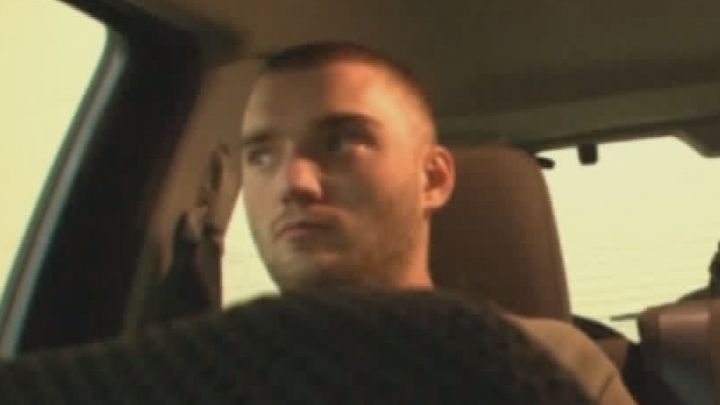UPDATE: Derek Saretzky guilty of killing Hailey Dunbar-Blanchette, father and senior

There was an emotional outburst in the triple-murder trial of Derek Saretzky after the jury was denied a request put to Queen’s Bench Justice William Tilleman earlier in the trial—a request to remain as a group of 14 to deliberate and decide the case.
Global News couldn’t report on the issue until Tilleman addressed it to the jury in open court Wednesday.
“You previously asked me if the 14 can sit together” to deliberate, he said. “I understand your desire…especially after a long trial. I know this is important to you.”
But Tilleman turned down the request.
“The law is that I cannot do this and I must follow the law,” Tilleman said, before quoting the Criminal Code.
Follow Nancy Hixt on Twitter for updates from court here
One of two jurors who was randomly drawn and dismissed stopped beside the judge’s bench as she left the courtroom.
Watch below: Global’s ongoing coverage of the Saretzky case
She was visibly distraught and said she felt compelled to tell Tilleman, “how wrong this is to subject people to this…and not let them have a final say.”
“It’s not right to treat people this way,” she said angrily, stating she wanted to be able to be a part of the final process.
The final 12 jurors were given the go-ahead to begin deliberating just before 1 p.m. local time Wednesday afternoon.
Saretzky, 24, is charged with first-degree murder in the September 2015 deaths of Hailey and her father Terry Blanchette, 27, in the southern Alberta community of Blairmore. He is also accused of killing 69-year-old Hanne Meketech, who was found dead five days earlier in her mobile home in nearby Coleman, Alta.
Saretzky has pleaded not guilty to all charges.
Jurors have had to take sudden and frequent breaks to cope with an overwhelming amount of graphic and disturbing evidence.
- Man in critical condition after setting himself on fire near NYC courthouse
- ‘They knew’: Victims of sexual abuse by Ontario youth leader sue Anglican Church
- Arrest made after police issue emergency alert about ‘dangerous man’ in Bible Hill, N.S.
- Trump trial set to hear opening statements Monday as another delay denied
READ MORE: Jury receives final instructions in Derek Saretzky triple-murder trial
Extra jurors are sometimes chosen to hear a case, to allow for the chance of someone having to leave during the trial. For example, a juror in the trial of Douglas Garland left suddenly after the death of a family member.
But the Criminal Code of Canada does not allow for 14 jurors to deliberate.
The code states:
“If there are more than 12 jurors remaining, the judge shall identify the 12 jurors who are to retire to consider the verdict by having the number of each juror written on a card that is of equal size, by causing the cards to be placed together in a box that is to be thoroughly shaken together and by drawing one card if 13 jurors remain or two cards if 14 jurors remain. The judge shall then discharge any juror whose number is drawn.”
Mark Farrant was the jury foreman in a lengthy and graphic trial in Toronto in 2014 that convicted Farshad Badakhshan of the second-degree murder of his girlfriend Carina Petrache. Farrant is the man behind the #12AngryLetters campaign.
He collected letters from 12 jurors from 12 different cases to highlight the ongoing impact preforming this civic duty can have.
He said he can sympathize with the jurors in the Saretzky case wanting to see it through as a group of 14.
“I’ve had a number of jurors from across the country bring this up,” Farrant told Global News.
“It’s a very horrible situation to be in because you are so attached to the case and you feel powerless, especially if you are one of the ones to be excused.”
READ MORE: Jurors in Derek Saretzky triple-murder trial visibly upset as more disturbing evidence is shown
In his case, there were only 12 jurors selected from the beginning, so none had to be dismissed.
“I would have been devastated. Any individual would be devastated. You’ve got so much invested in it—it’s your whole life for the duration of the trial.”
But he also understands why extras are chosen.
“You can never predict what’s going to happen in people’s complicated lives,” Farrant said.
When the trial he was involved with was winding down, he was about to become a father.
“We had our son a month after the verdict was delivered. People thought I was going to drop.”
Farrant said he had a letter already written, ready to be passed to the judge that stated, “If my wife goes into labour, I see no other course but for me to go.”
Farrant is also pushing for a nationwide standard for juror support that would include unlimited access to counselling.
Watch below from June 6: Former juror warns of long-lasting traumatic impact Saretzky trial is likely to have

Currently, supports differ from province to province.
Alberta Justice told Global News counselling packages are offered to all trial jurors free of charge.
This includes a toll-free hotline number that connects them with a counsellor for assessment and four in-person counselling sessions that can be used anytime during the trial or up to two months after the trial ends.
Additional sessions can be requested based on counsellor assessments.
Trudeau stands behind jurors facing post-trial trauma
The emotional impact jurors often struggle with was recently addressed by the prime minister after Farrant’s campaign came up in the House of Commons.
“Members of all parties have supported Mark Farrant’s tireless advocacy on behalf of Canadian jurors,” Member of Parliament Murray Rankin said last week. “So first, will the prime minister stand now and thank every Canadian who’s served on juries, and second, will the prime minister do everything in his power to work with the provinces to better support Canadians who have suffered from doing their jury duty?”
Prime Minister Justin Trudeau responded by saying: “It gives me great pleasure to stand and thank all Canadians who have served on juries, all Canadians who’ve served their country in so many different ways.”
Trudeau pointed to the long-lasting effects on jurors, as well as other Canadians called to serve their country.
“That’s why in our most recent budget we invested $5 billion in mental health care for the provinces to be able to actually support Canadians who are struggling with mental health issues,” he said. “This is a matter of extreme importance to us, and indeed to all Canadians, and I thank the member for his question.”











Comments